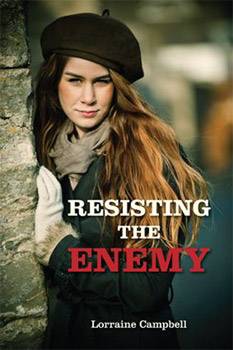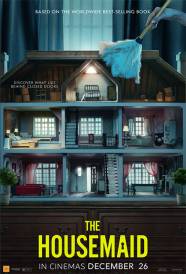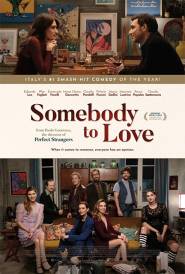Resisting the Enemy

Resisting the Enemy
The first YA novel from Lorraine Campbell, Resisting the Enemy follows the story of Valentine de Vaillant – known as Valli – from a twelve-year-old schoolgirl in Australia, to a young woman living in German Occupied France.
From the moment Valli joins a Resistance group, she engages in a series of clandestine activities that at any moment could lead to arrest by the dreaded Gestapo. When a German Army officer is billeted at her grandmother's villa, Valli's world is thrown into turmoil. How can she possibly reconcile her growing attraction to a German – a member of a brutal oppressive regime – with her life as a French patriot and résistant.
Resisting the Enemy is a thrilling story of conflict, danger and passion. A love between enemies that seems impossibly doomed. It moves from the beaches of Australia, to the boulevards of pre-war Paris, through the German invasion and the dark years of the Occupation. It is also about music and opera, the enduring bonds of friendship, and one young woman's fight to resist oppression, no matter what the odds.
The first in a two book series, Resisting the Enemy is an entertaining and intelligent read for YA fiction fans.
Lorraine Campbell is a licensed shorthand writer and has worked for seventeen as a Court Reporter with the Victorian Government Reporting Service, providing verbatim transcripts of court proceedings. She is currently working for a freelance transcript provider. She has a Bachelor of Arts Degree from Monash University, majoring in Philosophy and English Literature, and has studied German and French for a number of years.
A resident of Melbourne's Bayside, Lorraine adores the opera and is an avid moviegoer. She also likes to keep fit and runs every morning along the beach and in the local parks.
Resisting the Enemy
Palmer Higgs
Author: Lorraine Campbell
ISBN: 9780992549329
RRP: $24.95
Interview with Lorraine Campbell
Question: How did your workplace inspire the story behind Resisting the Enemy?
Lorraine Campbell: I can't say that my workplace was a direct inspiration for the story. However, a couple of characters in the book are lawyers and some of the scenes take place in the law courts. So in that sense my background as a Court Reporter was of enormous help. I would say, though, that working in the law courts – particularly in the criminal jurisdiction – provided me with a rich array of characters to study. An invaluable source of inspiration for any writer. Every aspect of life at some stage ends up in the law courts. As a shorthand writer, covering trial after trial, you see it all.
Question: Why do you believe it's important for young adults to learn about world history?
Lorraine Campbell: History is the story of our past. It explains why the world is the way it is today. And for young adults to really understand the world around them, they need to know the steps it took to get here. How the seeds of what is happening today were sewn in the events of the past.
Studying history also causes young people to reflect on the use and abuse of power. To think about the dangers of remaining silent, indifferent and apathetic to the oppression of others.
Many of the freedoms we take for granted today are due to the sacrifices made by others in the past. The democratic institutions and the freedoms we enjoy as citizens today are not automatically sustained. They need to be nurtured, appreciated and protected. History teaches young people how to value those freedoms. It also shows them how easily they can be lost.
Question: Can you talk about the research and travel that went into writing Resisting the Enemy?
Lorraine Campbell: Even though I was writing a work of fiction, I wanted to ensure that the background to the story was completely authentic. Over a period of about five years, I accumulated an extensive library of history books, biographies and memoirs, as well as numerous reference books on all manner of subjects. You find yourself going down all sorts of paths and byways, endlessly fascinated by what you're discovering. One week you might be researching the medals and uniforms of the German Army: the next, you're reading up on French fashions of the 1930s and the outrageous creations of Elsa Schiaparelli. That said, the major trick of writing good historical fiction is knowing what to leave out. Not to load the reader up with endless historical detail. Try to weave it seamlessly into the story.
On the practical side, it involved a number of trips to Paris, Lyon and the south of France. This was one of the most enjoyable aspects of my research. Checking out locations for particular scenes, following in the footsteps of my characters. Always bearing in mind, of course, that present day locations may have changed from what they were at the time.
Question: Can you tell us about the second book in this series?
Lorraine Campbell: In the second book, 'In Mortal Danger" life under the German Occupation has become even more dark and dangerous for those in the French Resistance. For Valli – my main protagonist – living under the same roof as the enemy, there is now an added danger. The more she comes to know Colonel Maximilian von Stahlmann, the harder it becomes to resist her growing feelings for him. When her dearest friend is arrested by the Gestapo, Valli faces her most perilous situation yet. All her courage and resourcefulness is put to the test. But in order to save her friend, she must risk everything. Be willing to do whatever it takes. Even if it means putting her own life in jeopardy.
Question: What do you enjoy about writing young adult books?
Lorraine Campbell: The possibility that in some way my characters might inspire young girls in positive ways. It gives me the chance to present young readers with a strong, resourceful protagonist. An ordinary young woman, living through real historical events. How she finds the courage to stand up for what she believes in. And how, when needed, we all have the potential for that in us.
In a world awash with Kardashians and empty celebrity, where young girls are pressured into becoming self-absorbed, obsessed with looks and appearance, it's never been more important for them to have strong female characters in fiction. And young readers are particularly impressionable. It's a time when we're most open to be influenced by what we read in books. Something about a character you loved as a child will have rubbed off on you. Inspired you in some way. Writing for young adults gives me the opportunity to show that inside every young girl there is a hero.
MORE





